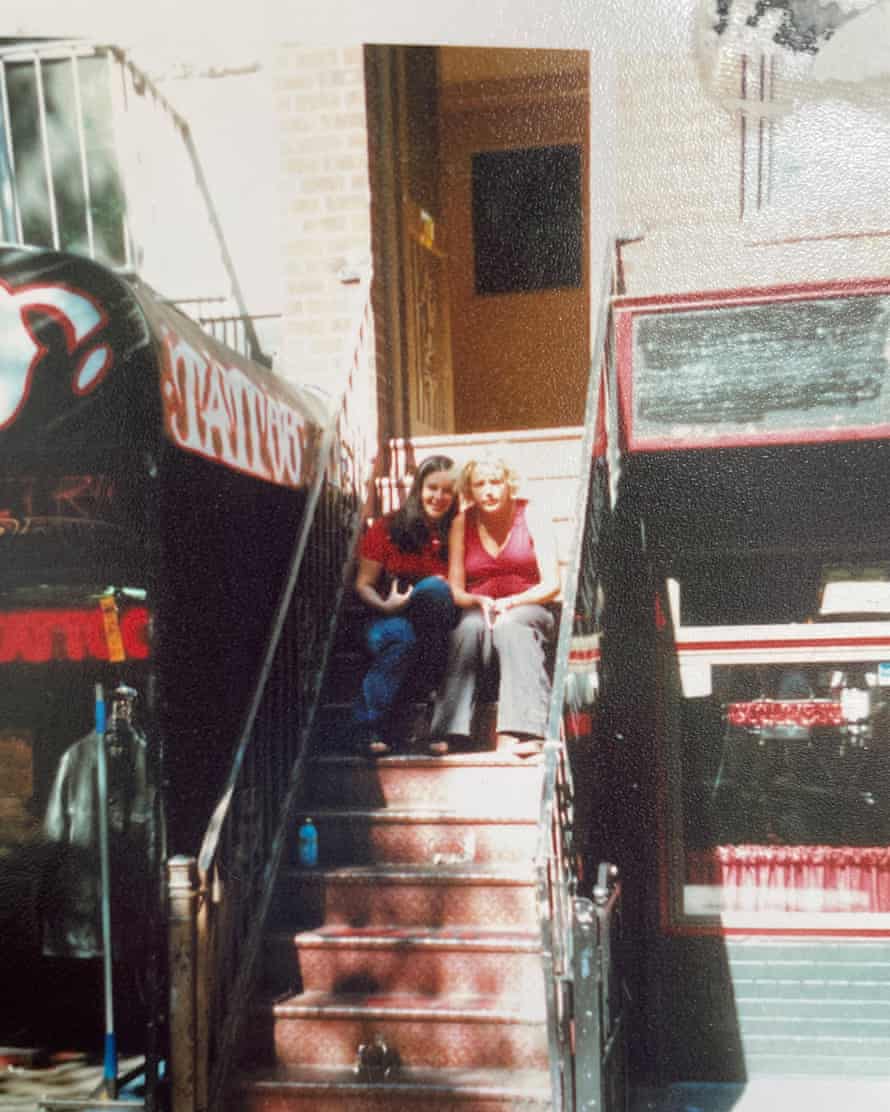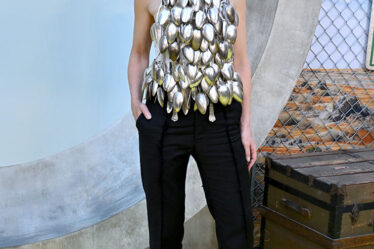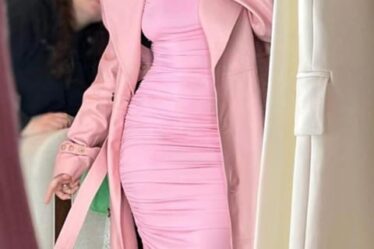
When I was 19 I lived in Belfast. It was two hours from my childhood home in Dublin and I loved my life there, studying at Queen’s University, living with a gaggle of hilarious and brilliant girlfriends, and working in cafes and a nightclub at the weekends to fund my record-buying habits.
At the end of my second year, I applied for a J1 short-term working visa for the US, for which any Irish university student was eligible. I was determined to settle in Manhattan.
I landed at JFK at the start of the summer of 1998, with my friends Aran and Orla. After a few weeks we got ourselves an unfurnished rental in the grimy countercultural haven of St Marks Place. Our flat was above an Irish pub called Bull McCabes and between a tattoo parlour and a record shop. I had gone from living in a quiet residential road in Belfast to living on the same street where Leon Trotsky, WH Auden, Debbie Harry and William Burroughs had lived, where Andy Warhol had run a nightclub in the 60s, where the New York Dolls and Led Zeppelin shot album covers, where the Rolling Stones and Billy Joel filmed music videos and where the 1995 movie Kids was set. But I was more concerned with finding a bed to sleep on.
We found an old double mattress on the street and borrowed a shopping trolley from a homeless person to transport it home. We doused it in disinfectant, dried it out, and that was our bed for the summer.
It was July. I got a job working in a tiny vegan cafe called Michael and Zoe’s on Second Avenue, serving power shakes and rye bread sandwiches to the local East Village community. I served upfront, and my colleagues Samir and Said worked in the kitchen. They were Algerian. Samir had a chipmunk face, all cheeks and dimples, and Said had huge brown eyes and a gentle way about him. We sang along to Hot 97 FM all day and, between customers, we became friends.
Every morning, I sat on the front steps of the house and observed the people of St Marks Place. My favourite person to watch was the one I called the Red Cowboy. St Marks Place was his catwalk and he paraded down it daily, wearing a red cowboy hat, red cowboy boots, a red waistcoat and a pair of crimson Y-fronts to match.
He was lean and muscly, ebony-skinned, imperious in his strut. I was fascinated by him and how he marked himself on to a person’s consciousness. Look at me. Here I am. You won’t forget me. I wanted to know where all his shame was. I didn’t realise until I saw him, because it was all I ever knew, but shame was ingrained in Irish culture, a state to live with and to measure everything against. Against the backdrop of a childhood when we were told not to cause a scene or to flaunt our bodies, and where self-promotion was perennially frowned upon, the Red Cowboy was defiant and outrageous, and I loved him for it.
On my days off I explored. I marvelled at the long swords of light slicing through the skyscrapers for tens of blocks, the people scurrying below like insects. I walked from Union Square all the way down Broadway, through Chinatown and then Little Italy, past the law courts and the financial district to the big blue-skied reward of Battery Park and the Statue of Liberty, calmly presiding over everything, that beatific expression on her face saying: everyone’s welcome here. You can be whoever you want.
I remember the thick hum of stale urine as you descended into the subway, the seemingly limitless places it could take you. Even the weather seemed supersized, with thunder rumbling in the mid-afternoons, followed by fat warm raindrops, the damp dust smell of the pavement after, as strong and as forceful as the rain itself. It was an onslaught on the senses.
On the nights when my shifts finished at 1am, I would walk to meet my friends in late-night bars behind thick curtains. There were block parties under the stars, trips to Twilo nightclub, and many nights spent on the roof of our building, drinking and dancing. Sometimes we would lie down on the tar and peer over the edge to the heat and din of St Marks Place below.
After three months, I returned to Belfast, changed. I was emotional and anxious about being back on the island of Ireland, where you were put in a box whether you liked it or not. I didn’t want to lose this new perspective I had on the world. Doors had been flung open in my head. I was bolder, more curious, hungry to see the world. Living in Belfast had exposed me to the wonders of late-night music shows on BBC Radio 1. For the first time since leaving home, I had found a place that I wanted to work. The next summer, on the eve of a new century, I arrived in London, the home of the BBC, to start a whole new journey.



